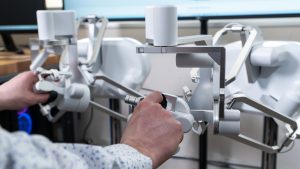An Ottawa biotech firm is teaming up with a U.K.-based company to produce groundbreaking gene and cell therapy solutions aimed at treating diseases such as cancer.
Founded in 2018, Virica Biotech makes specialized compounds that help boost production of viral vectors, which deliver material into infected cells that’s designed to fix defective genes responsible for diseases such as cancer and hereditary blindness.
This week, the company announced it has inked a partnership with gene and cell therapy provider Oxford Biomedica to help the publicly traded British firm improve the yield and production efficiency of its next-generation gene therapies.
(Sponsored)

A commitment to mentoring and development creates the next generation of firm leaders
HW Partners (Formerly Hendry Warren LLP) is excited to announce the appointment of Celine Fu, CPA, CA, and Robin Lawrence, CPA, CA, to the firm’s partnership. The Partners are proud

How Carleton is using simulation and visualization to improve training, design and human performance
From healthcare to aviation to architecture, simulation and visualization tools have become an essential part of training, analysis and decision-making in sectors that rely on precision. At Carleton University, researchers
Virica’s chief business officer, Ella Korets-Smith, said there is growing demand for such products to “support the use of lifesaving cell and gene therapies globally.”
The deal marks another big step forward for Virica, which raised a multimillion-dollar funding round for its gene therapy-boosting technology last year.
At that time, Virica had contracts with more than 20 manufacturers of gene therapies designed to make treatment more affordable and effective. Co-founder and CEO Jean-Simon Diallo told Techopia last fall he expected the firm’s headcount to grow from 16 to at least 30 by the end of 2022 as demand for its technology ramps up.
Virica was initially based out of Bayview Yards as part of Invest Ottawa’s pre-accelerator program. But the growing startup struggled to find suitable lab space in the region and considered relocating to Toronto or Montreal until the new University of Ottawa Health Innovation Hub helped it secure a 3,000-square-foot facility at the University of Ottawa Heart Institute late last year.



